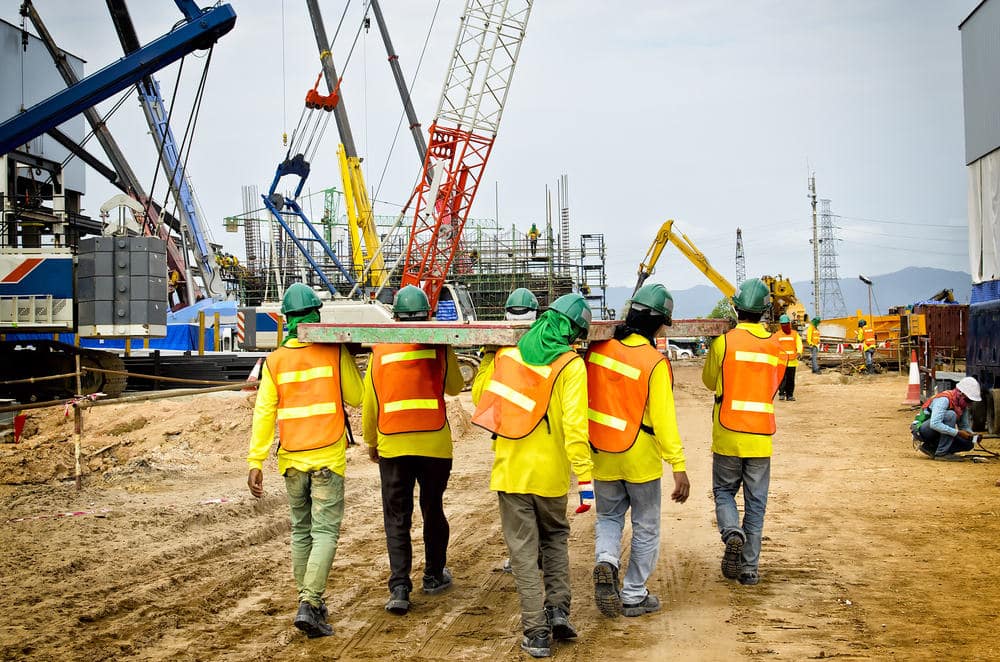
Impact of Climate Change on Construction Project Insurance Premiums
Climate change is no longer a distant threat—it’s a present reality affecting various sectors worldwide. One area where its impact is particularly profound is the construction industry.
Insurance is crucial for managing the inherent risks of construction projects, but climate change is driving insurance premiums higher. Understanding this connection is essential for anyone involved in the construction sector.
Understanding Climate Change
Climate change refers to significant changes in global temperatures and weather patterns over time. While it occurs naturally, human activities like burning fossil fuels and deforestation have accelerated these changes. The result is more frequent and severe weather events, from hurricanes to heatwaves, directly impacting construction sites.
Construction Project Insurance
Insurance for construction projects includes various types of coverage, such as builders’ risk, general liability, and professional liability insurance. These policies are designed to mitigate risks like property damage, third-party injuries, and professional errors. Premiums are calculated based on factors like project size, location, and the contractor’s history.
Rising Risks Due to Climate Change
The increasing frequency of extreme weather events poses significant risks to construction projects. Flooding, for instance, can halt construction, damage materials, and delay timelines. Similarly, wildfires can devastate sites, leading to substantial financial losses. These heightened risks drive up insurance premiums as insurers adjust to the growing likelihood of claims.
Insurance Premium Trends
Historically, construction insurance premiums have fluctuated with the market and claim trends. However, recent years have seen a marked increase due to climate-related events. Hurricanes, floods, and wildfires have resulted in substantial claims, prompting insurers to raise premiums. This trend is expected to continue as climate change progresses.
Adaptation and Mitigation Strategies
To combat these rising costs, construction companies can adopt various strategies. Building to higher standards of resilience, such as using flood-resistant materials and fire-retardant designs, can reduce risk. Additionally, technology plays a crucial role in risk assessment, helping companies anticipate and mitigate potential impacts.
Financial Impact on Construction Projects
Higher insurance premiums have a significant financial impact on construction projects. These increased costs can strain budgets and affect the overall financial viability of a project. Therefore, it’s essential for construction companies to incorporate these potential costs into their budgeting and long-term financial planning.
Sustainability in Construction
Sustainable construction practices not only benefit the environment but can also lower insurance costs. By reducing the carbon footprint and employing energy-efficient designs, projects can become less susceptible to climate impacts, resulting in lower premiums. Sustainable projects like green buildings often enjoy these financial benefits.
Government and Regulatory Influence
Governments play a critical role in shaping the construction industry’s response to climate change. Policies promoting resilient construction and sustainability can significantly influence insurance premiums. Incentives for adopting green building practices and stringent building codes help mitigate risks and lower costs.
Future Outlook
Looking ahead, the construction industry must brace for ongoing climate impacts. Predictions suggest more severe weather events, requiring a proactive approach to risk management. The construction insurance market will continue to evolve, with insurers developing more sophisticated models and policies to address these challenges.
The impact of climate change on construction project insurance premiums is undeniable. As the frequency and severity of extreme weather events increase, so do the risks and associated costs. By adopting proactive measures, embracing sustainability, and staying informed about regulatory changes, the construction industry can navigate these challenges effectively.
FAQs
What is the main reason climate change affects construction insurance premiums?
Climate change increases the frequency and severity of extreme weather events, leading to higher risks and more frequent insurance claims, which drive up premiums.
How can construction companies reduce their insurance premiums in the face of climate change?
By adopting resilient construction practices, using advanced risk assessment technologies, and embracing sustainable building methods, companies can lower their risk profiles and potentially reduce premiums.
What role does technology play in assessing climate risks for construction?
Technology aids in accurately predicting and assessing risks, enabling companies to implement effective mitigation strategies and improve their overall resilience.


